Anyone with a fondness for a particular place eventually develops an interest in how it looked at other points in time, and how other people perceived it. It’s a short step from that point to paying more attention while visiting art galleries and developing an enhanced appreciation for the works of local and regional artists.
A great many artists have been and continue to be drawn to the picturesque village of Woodstock, Vermont. One of the most prolific of these was Arthur Brickett Wilder, the long-time manager of the Woodstock Inn. Wilder was born in Poultney, Vermont on 23 April 1857, the second son of Jonas Brown Wilder and Julia (McBurney) Hill.
Jonas Brown Wilder was the archetypal inventive Yankee. Born on an impoverished hill farm in Wendell, Massachusetts in 1813, he started work as a shoemaker in South Deerfield as a 13-year-old boy, became an itinerant shoe salesman, later a store clerk, and in 1843, at age 40, started as a construction worker on the newly established Vermont Central Railroad. Always a salesman at heart, with the completion of the railroad he switched to an operating role in which he traveled the line soliciting freight. By 1852 he was manager of the Rouses Point Station in upstate New York. Wilder was a significant force in the development of railroads in both Vermont and upstate New York. While employed by the Ogdensburg and Lake Champlain Railroad in 1851 he created the first refrigerated boxcar, designed with hollow walls that were filled with ice from hatches on the top of the car. The invention would revolutionize the transportation of perishable goods, allowing farmers to get dairy products to market with much-reduced spoilage and the shipment of fruits, vegetables, and meat, formerly grown and marketed locally, across great distances. Unfortunately, Wilder neglected to obtain a patent for his invention and the first patent for a refrigerated boxcar was issued to William Davis of Detroit, Michigan in 1868. He also pioneered the concept of a coupon allowing rail passengers to book through to their destination across multiple separately owned rail lines rather than having to pay for each leg of the journey individually.
At some point prior to 1860, Jonas Brown Wilder left the railroad and opened a store in West Rupert, Vermont where he resided until 1883. It was here that his two sons, Frederick and Arthur, spent their childhood.
The Wilder brothers inherited their father’s energy and ambition. The oldest, Frederick Woods Wilder, had settled in Woodstock by 1875, where he worked as a teller for the Woodstock National Bank. Rising to President by 1917, he was an active townsman, one of the organizers of the Woodstock Aqueduct Company and the Woodstock Electric Company, and is credited with being a driving force behind the construction of the Woodstock Inn in 1892.
Arthur Brickett Wilder’s first business venture appears to have been the sale of specialty eggs from his father’s home in West Rupert, Vermont.
The 1880 Federal Census shows Arthur as a boarder in the household of George and Emma Richey of Rupert, Vermont. George Richey was a retail merchant and Arthur appears to have been a clerk living with his employer. His real interest, however, was art. Over the next several years he is known to have studied first under Amelia Montague Watson of Saratoga Springs, New York1, and later at the Art Students League of New York, and under Thomas Eakins at the Students’ Art Guild of the Brooklyn Art Association. By July of 1884, he was in Woodstock, where his brother Frederick was employed as a bank clerk, opening an art studio and offering lessons.
Wilder’s obituary states that he intended to make a career as an artist but gave it up because of health problems and took a position as a hotel manager in Big Stone Gap, Virginia.2 A notation in the Baltimore Sun makes reference to his resignation as Postmaster in that town in August of 1888.3 We may infer from this that his time in Virginia was between 1885 and 1888, which coincides with his father Jonas Wilder’s presence in the same town, developing a railroad. Arthur’s several years in western Virginia appear to have provided the management experience that enabled him to find his next position. At least one painting, a farm scene done in Bristol Point, survives from this period of his career.
By 1889 Arthur had returned to Woodstock where he purchased and managed the Eagle Hotel. On 14 November 1889, he married Julia McBurney Hill of Saratoga Springs, New York. The couple had six children including a son Frederick Jonas Wilder (1893-1977) who was an artist very much in the manner of his father.
In 1892 the Eagle Hotel was replaced by the Woodstock Inn, and Wilder continued his employment there, being appointed Manager in 1898. He approached his managerial career with the same creative energy that had characterized his father’s promotion of railroads. Recognizing the growing demand for outdoor recreation, he promoted multiple activities at the Inn including skiing, snowshoeing, skating, coasting, and sleighing.
His promotional efforts notwithstanding, summer was the Inn’s busiest season and, perhaps for that reason, Wilder became best known as a painter of winter scenes. A 1927 article in the Rutland Daily Herald observed “one of the theories to which Mr. Wilder tenaciously clings is that snow is never white, unless by reflected light. Following this theory he paints the snow in colors, which are the reflections of trees, mountains and other subjects which he selects for his canvas.”4 An earlier critique in the Vermont Standard stated “the paintings are noteworthy chiefly for an unusual sparsity of strokes in achieving winter effects in farm and woodland scenes, and for their capture on canvas of the brooding cold beauty of New England winters.”5
In 1924 one of Wilder’s paintings, a miniature of a larger work showing the Coolidge family home in Plymouth, was displayed on the wall of the White House. The larger work, shown below, is now in the collection of the Bennington Museum in Bennington, Vermont.
It is arguably Wilder’s finest work. A prolific artist, his paintings and pastels range from beautifully impressionistic works of the sort shown above to rather crude pieces that are almost childlike in their simplicity.
Arthur Brickett Wilder retired as Manager of the Woodstock Inn in 1935 but remained a director and honorary chairman of the Woodstock Hotel Company until his death on 15 February 1949. His paintings remain much-loved pieces of Woodstock memorabilia.
William Richard Cutter, compiler, New England Families Genealogical and Memorial, Volume I. New York: Lewis Publishing Company, 1914, 534.
“A. B. Wilder Dies at 91”, obituary, Rutland Daily Herald, 16 February 1949, 3.
The Baltimore Sun, 28 August 1888, 1.
“Hotel Manager Talented Artist”, Rutland Daily Herald, 1 August 1927, 9.
“Snow Paintings by Innkeeper are on Exhibition in Library”, The Vermont Standard, 18 December 1924, 2.

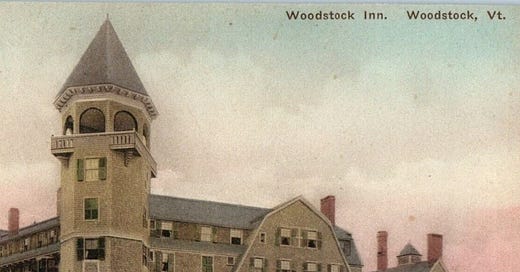


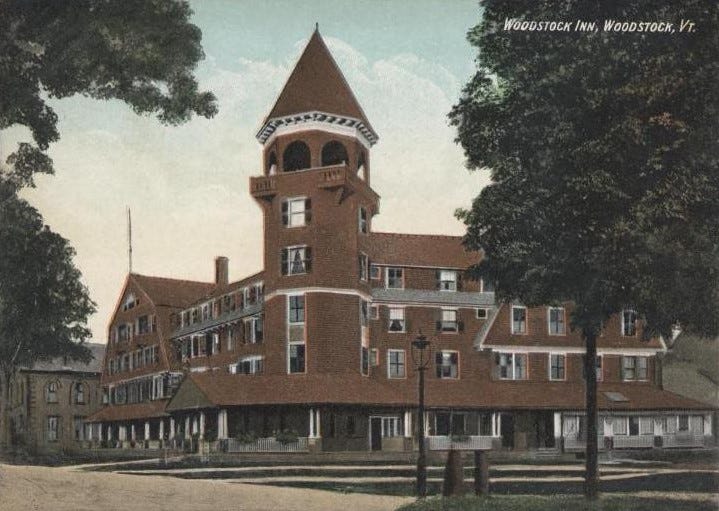
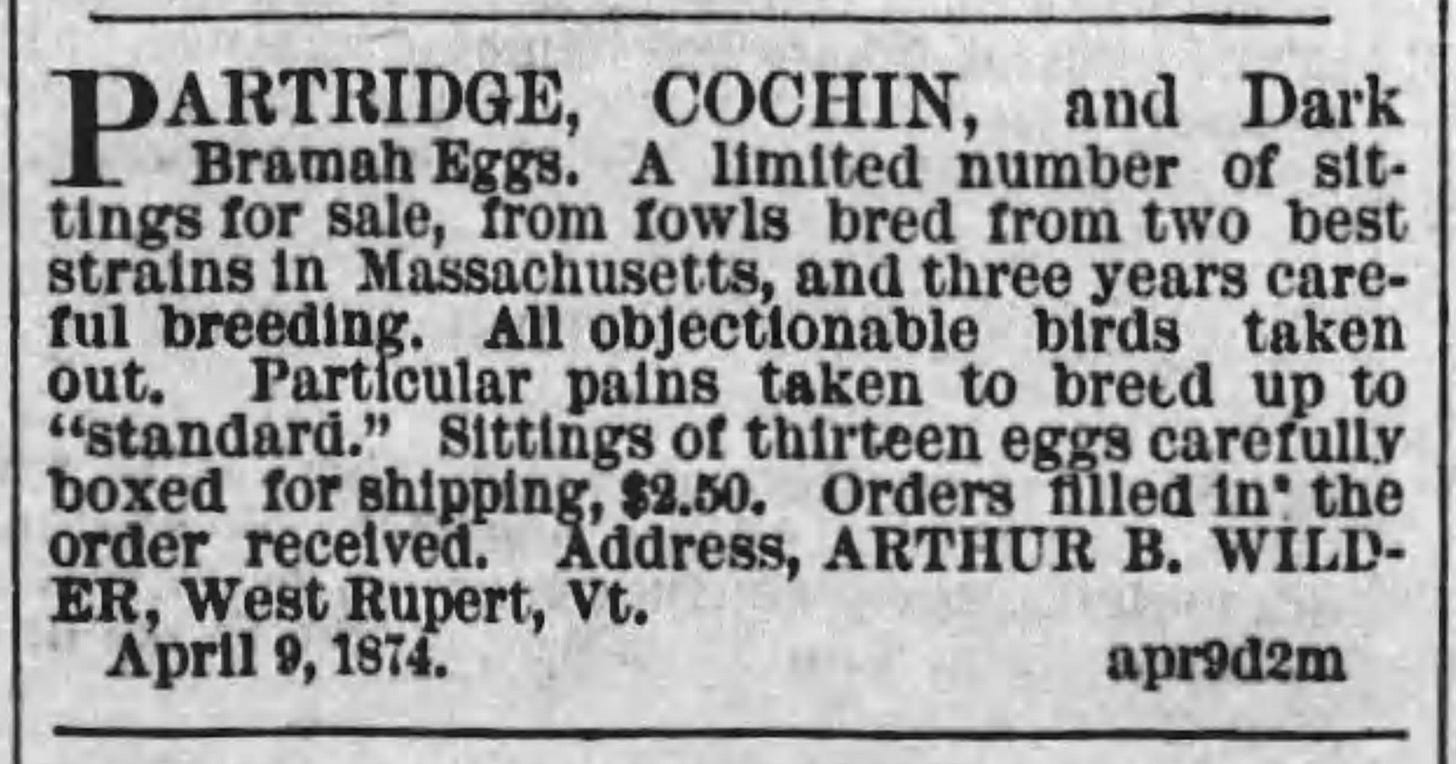
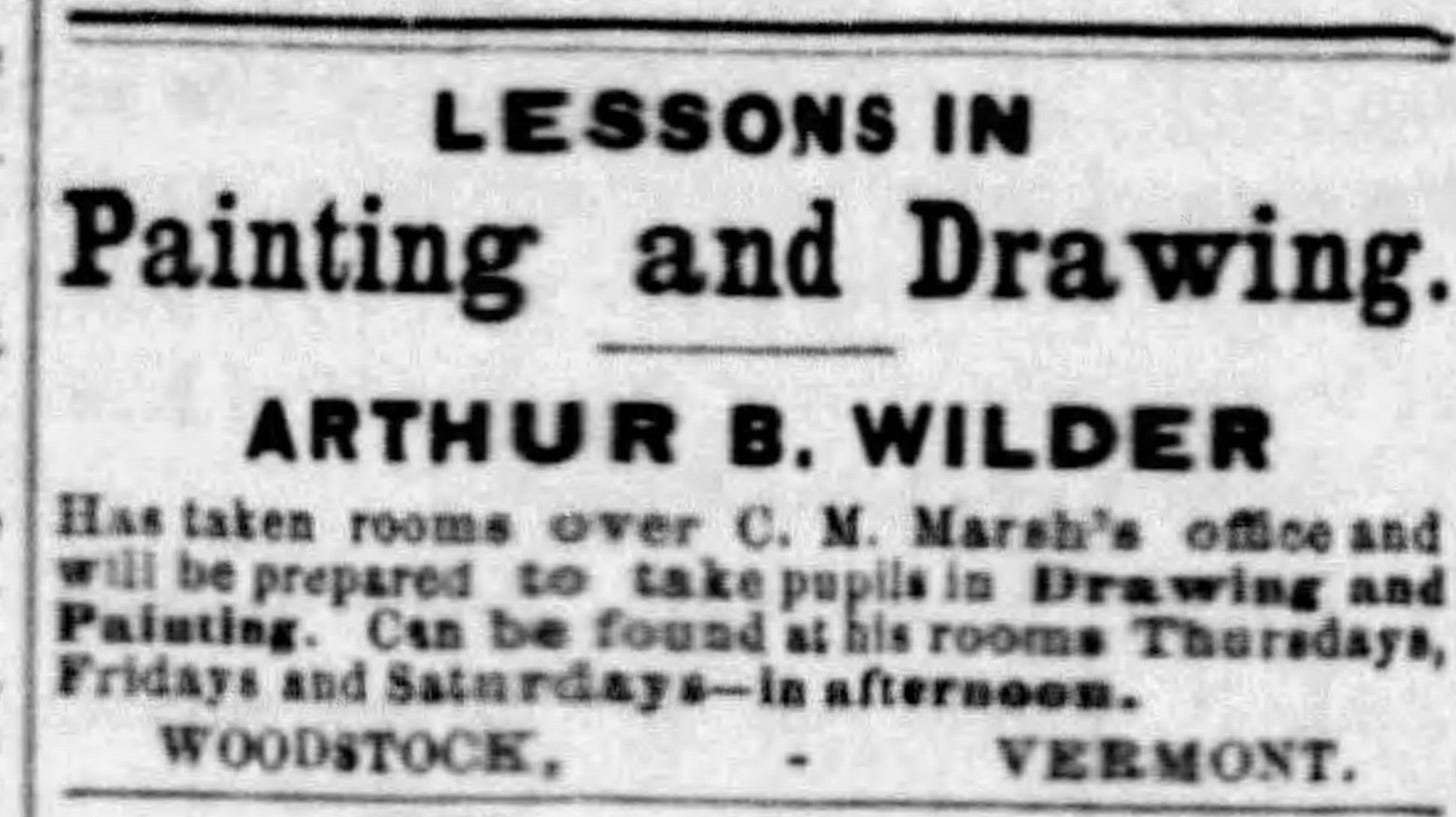
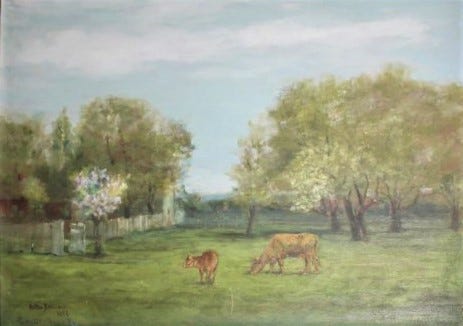
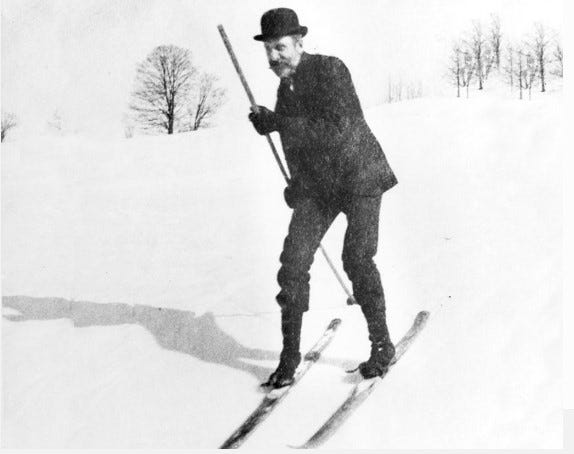
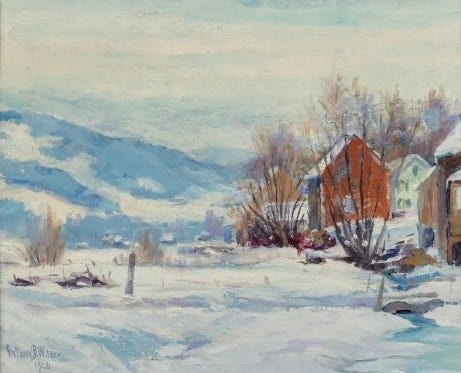
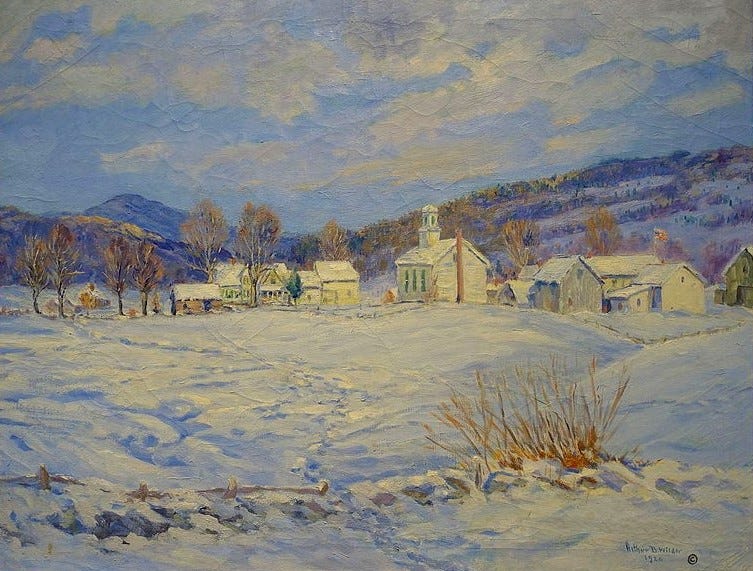
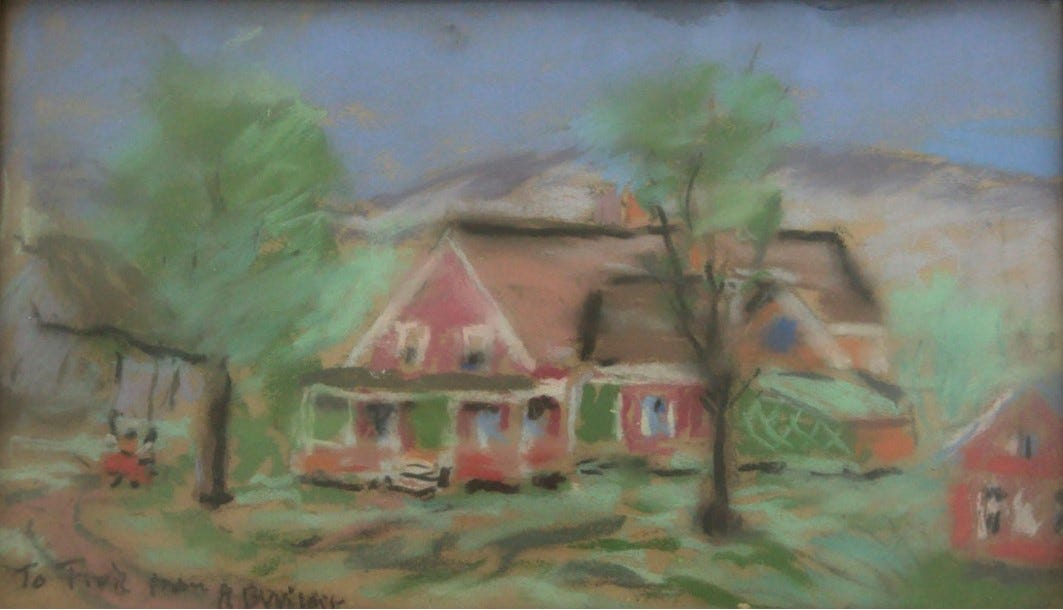
Elisha,
What fun for us , ( my family spent many many years in N Pomfret, just out side of Woodstock) we had such a great group of friends from Woodstock and so many fun skiing weekends and vacations on Suicide Six the neighboring ski hill. To hear about that fabulous old inn was such fun and such fun to hear about its history. And! Thanks So much for sloothing into Samuel Rich’s family! You’re amazing! ❤️Celina mum
The Woodstock Inn brings back many happy memories to this Dartmouth 69 graduate. Dinner there was always an extremely extravagant treat – and therefore saved for very special occasions like trying to complete the "snow job" on one's Winter Carnival date. The hardest part of the evening was always the slightly treacherous drive back to Hanover on the dark winter's night after a few bottles of wine.